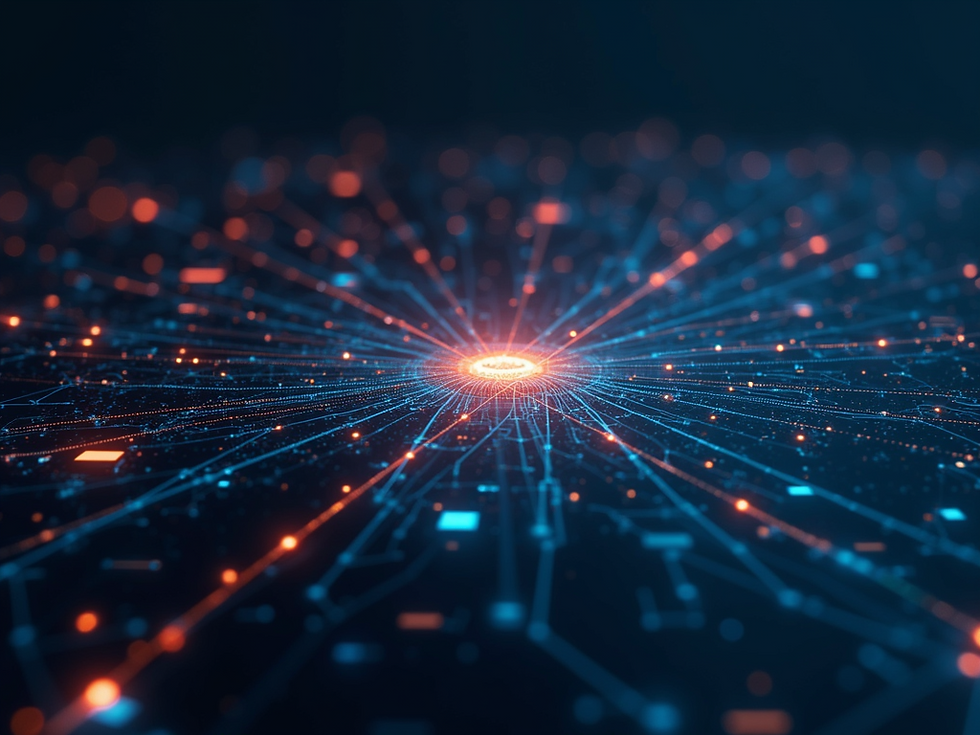How Women Are Changing The Cybersecurity Landscape
- Cyber Jill

- Feb 13, 2023
- 3 min read
This guest blog was contributed by Shikha Kothari, Senior Security Advisor at Eden Data.

Back in 2013, only around 11% of cybersecurity jobs were held by women. So, now that the number has finally crept up to 25%, we can see the positive effect women are having on the male-dominated cybersecurity industry.
With more women joining the cybersecurity workplace, a wide array of benefits can be seen. From worldwide industry growth to establishing strong female role models—women are taking the cybersecurity industry by force.
The sector has relied on technology for too long to stay ahead of the competition; it's time the industry remembered who builds and maintains its infrastructure—its workforce. More businesses are finally recognizing and profiting from the benefits females in the industry offer and turning their workforce into their competitive edge.
So, in what ways are women revolutionizing the cybersecurity sector? Let's dive in.
Helping to Aid in Industry Growth
It's no secret that a lack of diversity stunts company and industry growth. Nowadays, not all hackers are the same, so why have cybersecurity companies kept hiring the same type of candidates? To stay competitive, the industry needs to take advantage of female candidates as someone's background and experiences shape the way they think.
As Albert Einstein once stated, 'the definition of insanity is doing the same thing over and over and expecting different results'. And so, the cybersecurity industry is finally leveraging women's cognitive and emotional prowess.
Emotional intelligence is a hot topic for debate, but research from Korn Ferry has shown that women consistently score higher in social and emotional competencies. The study used 55,000 participants from 90 countries and discovered that women outperform men in many competencies. These included coaching and mentoring, conflict management, adaptability, and teamwork—all vital abilities when it comes to cybersecurity.
Furthermore, having high emotional intelligence is also crucial during high-stress work situations. For example, regulating one's emotions and staying focused on the end goal is vital when tackling a cyberattack. A more well-rounded and emotionally aware workforce helps industries like cybersecurity grow and tackle new challenges.
By Closing the Cybersecurity Gender Gap
While this point may seem obvious, it goes much deeper. Closing the gender gap isn't about having a 50% gender split to look good on reports; it's about understanding how effective and essential a diverse workforce can be for individual companies and the industry as a whole.
With more women in the cybersecurity industry than ever, they're increasing female visibility within the workplace and giving more women everywhere real industry role models. Better representation is a significant factor in influencing women of all ages to think that cybersecurity is a viable career and not to be deterred by the fact that it's male-dominated.
Women like Pat Ryan, founder, and CEO of Cyber Girls First, are making a considerable difference in the industry as her project brings teenage girls together to teach them the vast implications and importance of coding and cybersecurity. Projects like this are creating the cybersecurity leaders of tomorrow.
Today, hackers could be anyone; they don't fit the stereotype of the geeky teenager holed up in their parent's basement. Therefore, the industry needs to continue to work hard to continue to attract and retain female workers to help broaden their workplace perspective and allow them to solve new problems more efficiently.
The 2022 (ISC)² Cybersecurity Workforce Study revealed that a further 3.4 million jobs need to be filled globally to meet the current demand. Therefore, with new candidates being highly sought-after, the industry must keep benefitting from more females in the workplace. With the help of women in cybersecurity, the sector can continue to knock down barriers like damaging stereotyping, sexual harassment, and the gender pay gap. It's time to change the cybersecurity landscape for the better.
###


